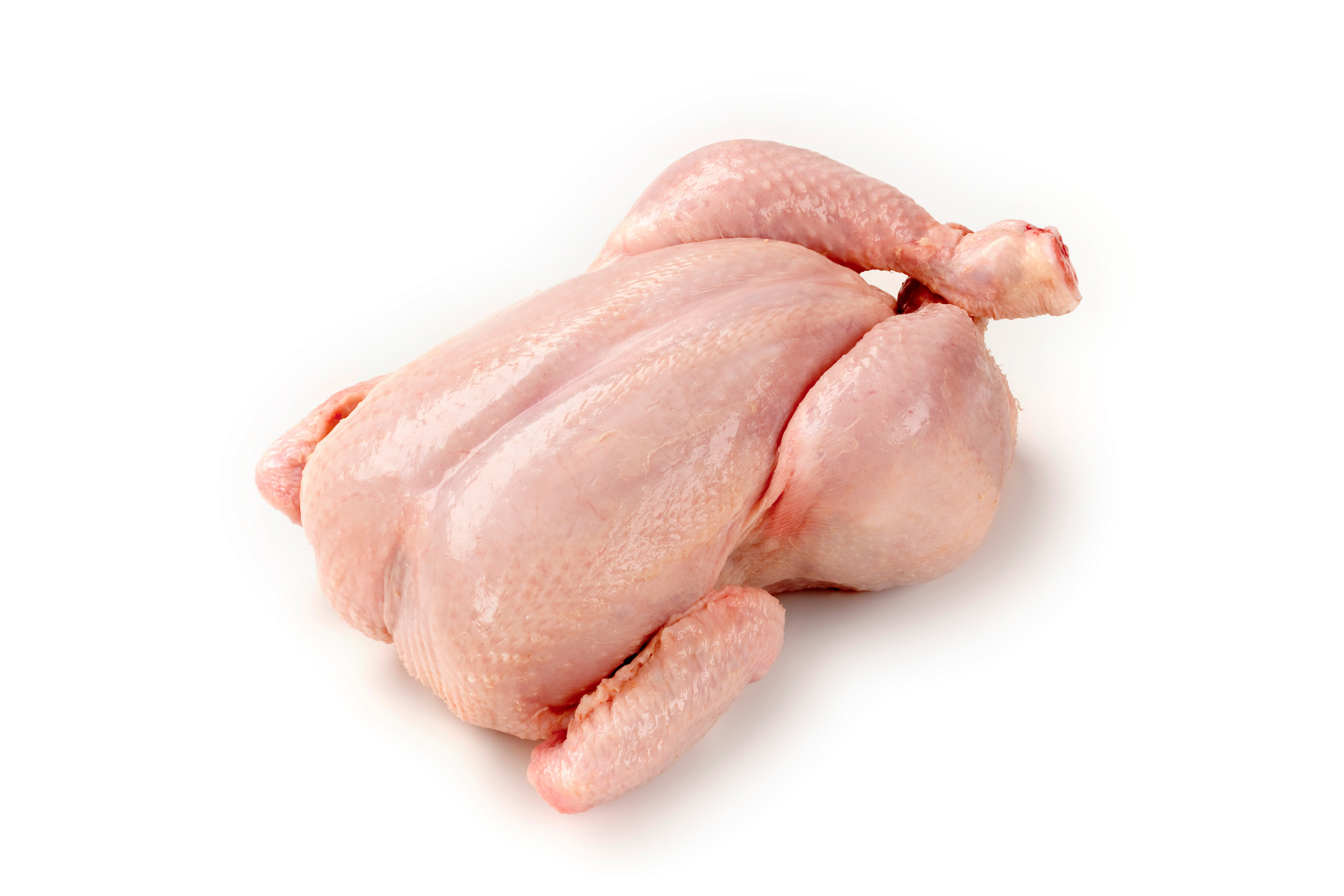Whole Chicken - Cornish Cross
$22.75
Size
Details
Cornish Cross Broilers
We raise our Cornish Cross broilers for about 8 weeks. After spending their first couple of weeks in the cozy Mother Cabin, they’re moved out to our pasture Turtles, where they get fresh grass and a new spot every other day. Along the way, they’re provided with fresh water daily and a non-GMO feed to ensure steady, healthy growth. Cornish Cross are known for their efficiency and tender meat with large, plump breast portions, making them the classic choice for a traditional whole chicken dinner.
How It was Raised
We raise our broilers in mobile shelters we call “Turtles.” Each Turtle holds about 75 birds, and every other day we move them one Turtle length across the pasture. Along with the forage they find, we provide a non-GMO feed to ensure they receive nutrients they may not get solely from the pasture. Following Joel Salatin’s methods, as described in Pastured Poultry Profits (1993) and his “Farm Like a Lunatic” teachings, this approach offers the following benefits:
Better Bird Health & Welfare
- Broilers live outdoors on fresh grass with sunlight and clean air.
- Lower disease pressure than in confinement houses.
- Birds grow stronger with reduced stress.
Superior Meat Quality
- Richer flavor and firmer texture.
- Higher omega-3s and vitamins compared to conventional chicken.
- Customers describe it as “real chicken taste.”
Soil Building & Fertility
- Frequent moves spread manure evenly across the pasture.
- Adds natural nitrogen and organic matter.
- Builds topsoil and boosts pasture productivity over time.
Pest & Parasite Control
- Chickens disrupt insect life cycles by eating bugs and larvae.
- Especially effective when rotated after ruminants.
Cooking Tips
Whole Bird Cooking
- Roast: Classic method, roast at 375–400°F until internal temp reaches 165°F in the breast and 175°F in the thigh. Brush with butter or oil to keep the skin crispy and prevent drying out.
- Spatchcocking: Cut out the backbone and flatten the bird before roasting or grilling. This helps it cook evenly and faster, keeping the breast juicy.
- Rotisserie: Cornish Cross birds do really well on a spit; the self-basting rotation keeps the meat moist.
Cutting Up & Quick Meals
- Breasts: Because they’re large and can dry out quickly, consider pounding them thinner for cutlets, slicing for stir-fries, or poaching gently for salads and sandwiches.
- Thighs/Legs: More forgiving and flavorful, perfect for grilling, braising, or frying.
- Wings: Smaller compared to commercial broilers, but great baked, fried, or tossed on the grill.
- Flavor Boosting Tips
- Brining: A simple salt-water brine (optionally with sugar, herbs, garlic, or citrus) for 6–12 hours help keep the meat moist and flavorful.
- Dry Rubs: Paprika, garlic powder, onion powder, and thyme give a great flavor base.
- Herb Butter: Tuck seasoned butter under the skin before roasting for added flavor and juiciness.
Bones & Extras
- Stock: Save carcasses and bones for broth. Cornish Cross makes a rich, flavorful stock.
- Giblets: The liver, heart, and gizzard can be fried, made into pâté, or added to gravies.
Cornish Cross (young, tender, mild): Fast roasting, frying, or grilling.

